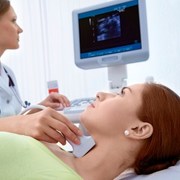Dr. Friedman what do you recommend women if diagnosed with hypothyroidism? What is the best way she can advocate her own health?
HYPOTHYROIDISM DIAGNOSIS
Hypothyroidism is a relatively common disorder. It affects more women then men, but I happen to be one of the men who does have it. Symptoms of hypothyroidism include fatigue, gradual weight gain, constipation, muscle aches, joint pain, feeling cold, menstrual irregularities, weakness, hair loss, dry, cold skin and slow reaction time. Many patients will have a goiter (enlarged thyroid). Although it has received much discussion, I believe low body temperature is not a reliable sign of hypothyroidism.
The incidence of hypothyroidism increases with increasing age. In other words, the older we get, the more likely a thyroid deficiency will show up. The most common cause of primary hypothyroidism (hypothyroidism originating in the thyroid gland itself), is Hashimoto’s Thyroiditis. Hashimoto's is an autoimmune condition. The body's own antibodies attack the thyroid gland and destroy it, leading to hypothyroidism. Hashimoto’s Thyroiditis may be a manifestation of multiple autoimmune syndromes and may occur in families. Hypothyroidism can also be due to a pituitary problem (central hypothyroidism). Diagnosing all types of hypothyroidism is important, because treatment with thyroid hormone will improve symptoms in patients with hypothyroidism, but is unlikely to help those who do not have hypothyroidism. In primary hypothyroidism, the thyroid gland, located in the neck, is less able to produce the thyroid hormones, T4 and T3. The pituitary gland, located in the head, responds to this deficiency by secreting more TSH. Thus, in more mild cases of primary hypothyroidism, T4 and T3 levels are normal, but the TSH is high. In more severe cases, T4 and T3 levels drop. Although the normal range for TSH is often between 0.5 and 5 mU/mL, values at the high end of the normal range may be abnormal. T3 is the more bioactive hormone compared to T, but T is more stable in the circulation.
MORE ON DR. FRIEDMAN
Theodore C. Friedman, M.D., Ph.D. has opened a private practice, specializing in treating patients with adrenal, pituitary, thyroid and fatigue disorders. Dr. Friedman has privileges at Cedars-Sinai Medical Center and Martin Luther King Medical Center. His practice includes detecting and treating hormone imbalances, including hormone replacement therapy. Dr. Friedman is also an expert in diagnosing and treating pituitary disorders, including Cushings disease and syndrome.
Dr. Friedman’s career reflects his ongoing quest to better understand and treat endocrine problems. With both medical and research doctoral degrees, he has conducted studies and cared for patients at some of the country’s most prestigious institutions, including the University of Michigan, the National Institutes of Health, Cedars-Sinai Medical Center, and UCLA’s Charles Drew University of Medicine and Science.





